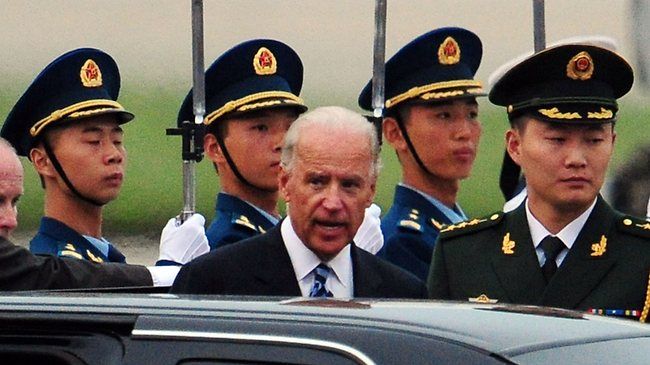US VP in China to discuss airspace zone

US Vice President Joe Biden has travelled to China to meet with Chinese President Xi Jinping on Wednesday in a climate fraught with tension over an airspace dispute.
A day before seeing Xi, the US official in Japan publicly rebuked China for announcing a new air defense zone in the East China Sea, which includes disputed islands also claimed by neighboring Japan, The Associated Press reported.
The recent Chinese announcement has pitted Washington and Beijing against each other, with the US expressing support for its allied Japan.
During his two-day trip to China, Biden is trying to bridge the gap created between the two countries over the issue.
Upon his arrival, Biden was met by a Chinese military honor guard before being whisked to the US Embassy.
The United States is deeply concerned that China’s action could portend a broader effort to assert its dominance in the region.
“We, the United States, are deeply concerned by the attempt to unilaterally change the status quo in the East China Sea,” Biden said after meeting in Tokyo on Tuesday with Japanese Prime Minister Shinzo Abe. “This action has raised regional tensions and increased the risk of accidents and miscalculation.”
To that end, Biden said he would raise those concerns with China’s leaders “with great specificity” during his Beijing visit, the report said.
The US and Japan have made a public show of unity following China’s demand that all aircraft passing over the disputed zone identify themselves to Beijing. American and Japanese aviation authorities are adopting divergent positions over whether civilian flights should comply with the Chinese demand.
Defying China’s demand, two American B-52 bombers on Nov. 25 entered the air defense zone without informing the Chinese government. In response, China sent its sole aircraft carrier to the South China Sea, forcing the Obama administration to advise its commercial airlines to abide by China’s newly declared air defense zone even though the US government has not recognized it.
The US advice to its airlines reflects fears that rising tensions could escalate into a real conflict in which the Obama administration would have to intervene on behalf of allied Japan.
The US has seen itself as the dominant power in Asia for long years and is now worried about China’s growing influence in the region. Chinese officials however, say the zone is in line with the practice of other nations that have similar zones to protect their coasts.







